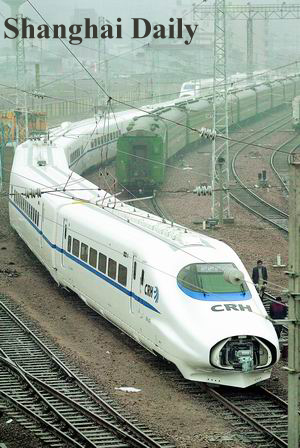McDonald's opens drive-thru in Beijing
By JOE McDONALD, AP Business Writer
BEIJING - McDonald's Corp. opened its first drive-thru in Beijing on Friday, launching a partnership with a major Chinese oil company to set up dozens of drive-thrus to exploit the country's growing taste for both cars and Western fast food.
The Beijing drive-thru is McDonald's 16th in China but the first in its venture with China Petroleum and Chemical Corp., which McDonald's China CEO Jeffrey Schwartz said would open 25 to 30 more in the next 12 to 18 months.
China's booming market is a key growth area for the hamburger chain, Schwartz said.
"It's huge. It's a real priority for the global company because of the potential growth in China," he said. "We think drive-thrus are a big part of this."
McDonald's and its partner, also known as Sinopec, christened the new two-story Beijing restaurant, set beside a Sinopec filling station, with a ceremony that mixed traditional lion dancers and a Chinese-speaking Ronald McDonald.
Minutes later, Beijing resident Dong Tianwu and his daughter pulled up at the drive-thru window in a Chinese-made Xiali compact and bought three meals and drinks.
"It's certainly convenient," Dong said. At a walk-in McDonald's, he said, "if you take a child, sometimes you have to line up for hours and that's a lot of trouble."
China's double-digit economic growth has created a burgeoning market for cars, fast food and other consumer goods. China has become the world's second-biggest vehicle market with 7.2 million sold last year.
McDonald's, based in Oak Brook, Illinois, opened its first restaurant in China in 1990 and has grown to 780 outlets in 120 cities with 50,000 employees.
It faces strong competition from Yum Brands Inc., the industry leader in China with more than 2,000 KFC restaurants and 300 Pizza Huts.
"China is certainly a significant market for McDonald's, and they're focused on seizing that," said John Owens, who follows the restaurant industry for financial firm Morningstar Inc.
McDonald's plans to open about 100 new restaurants in China over the coming year, with more than half equipped with drive-thru windows, Schwartz said.
The 20-year deal with Sinopec gives McDonald's the pick of any sites where the Chinese partner decides to open a restaurant beside one of its filling stations.
Sinopec, the country's No. 2 oil company, has more than 30,000 outlets throughout China and is adding 500 to 600 a year.
"It's a very interesting opportunity for McDonald's," said Owens. "They can cherry-pick the best sites."
Schwartz declined to give figures for McDonald's sales growth in China but said it is "very strong."
The company said this week its sales for Asia, Africa and the Middle East rose 5.5 percent last year. That was above the 5.2 percent growth rate reported for the United States.
McDonald's speeded up its plan to open drive-thrus in China after seeing strong demand at the first, which opened in December 2005 in the southern city of Dongguan near Hong Kong.
"We thought we were two to three years early, and once we opened it, we thought we might be two to three years late, because of how successful it was," Schwartz said.
The company also has drive-thrus in Shanghai and the southern cities of Guangdong and Shenzhen.
Labels: beijing

